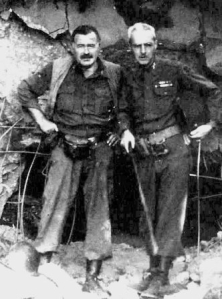
Are you frustrated with your characters? Are they slowing down what should be a gripping, page-turning story? Maybe it’s time you got them off their rear ends and put them to work.
In my re-writes, I search the text for characters who THINK rather than ACT. When I spot a cerebral, lackluster character, I start re-staging the scene like a director, deciding how the characters should approach and look at one another. When I’ve done my job, every character will be in motion. His tone of voice, eye movements, expressions, and stance will reflect and amplify his emotions and attitudes. THEN each character can tell a compelling story.
Body language is one of the most powerful tools a writer can use. When we express our characters’ emotions and thoughts in concrete, physical terms, we pull the reader deeper into the story.
In my sci-fi short story Aquarius, the protag, Joni Lingg, leads a shadowy organization within NASA through intimidation and the power of her personality. But why TELL when it’s more fun and intriguing to SHOW:
I once saw her chew out an Air Force major. I was in the next room, and could hear nothing, but could see them clearly through a window. Joni, a short brunette with the face of a child, was enraged, jabbing her finger and thrusting her tiny chin at the major, her blue eyes blazing in fury. The major took it like a confused, whipped puppy.
In Aztec Midnight, I could have had the first-person narrator just say he hits his low point when he’s thrown into a Mexican jail and feels like giving up. But this is more emotionally engaging:
In the dark, drunks with slouching shoulders gave way to grim-faced men with dead eyes and scarred forearms. I found myself being swept along with the drunks. The lone bench in the back was filled with Cuernavaca’s meanest residents, and I didn’t feel like another fight. I leaned against the unyielding bars and shut my eyes. The pressure of the cold metal against my throbbing head and back barely registered. There was no fight left in me, no strength. I had no idea of the time or what I could do next.
Hazy minutes passed by while I propped myself up against the bars. There was no clock. I guessed I’d been in the hole at least two hours. My eyes burned when I shut them.
The reason body language is so evocative is because we are social beings. Long before the invention of language, our physical reactions communicated to others vital information about what we were experiencing. Facial expressions, gestures, and posture came long before the invention of language. The ability to “read” body language is more fundamental, and therefore more moving, than reading written language. So the more physical we can make the story, the more real it is to the reader.
Recent research in neuroscience tells us that when we think about an action, we activate the motor area of the mind that controls that action. Magnetic resonance imaging scanners show that when a subject reads about kicking, for example, the area of the brain that controls kicking “lights up.” There’s an exciting new theory of language called “Embodied Cognition,” which can be summed up as, “We understand language by simulating in our minds what it would be like to experience the things that the language describes.”
That’s why other researchers have found that the brains of those who read powerful stories are changed by those stories. Indeed, reading vivid stories actually creates “muscle memory” in the brain as if the reader had actually lived the events in the story.
No wonder my feet hurt after reading Tolkien’s The Fellowship of the Ring. That was quite a trek.
Psychology Today offers a useful introduction to body language. If you want to rev up your stories, learn the basics of body language and, like a stage director, guide your characters’ movements so they reinforce what your characters feel and think.







